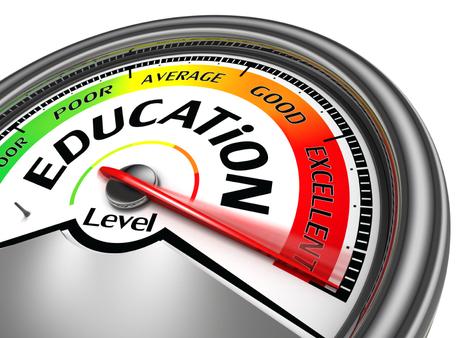Vouchers have been a fact in American private school education since 1989 when the State of Wisconsin passed a voucher program which aimed to help students from low income families in Milwaukee. Since then 39 voucher programs have been set up. According to the American Federation for Children the following states now have some form of voucher program:
- Alabama
- Arizona
- Florida
- Georgia
- Indiana
- Iowa
- Louisiana
- Mississippi
- New Hampshire
- North Carolina
- Ohio
- Oklahoma
- Pennsylvania
- Rhode Island
- South Carolina
- Utah
- Virginia
- Wisconsin
Vouchers
What exactly are vouchers? The simplest definition is using public funds to pay for a private school education. Voucher programs take many forms and we will look at those later in this article.
How many students nationwide benefit from voucher programs? In 2014 approximately 308,000 students were recipients of some kind of tax dollars in voucher programs or variations thereof. That is 0.006% of the K-12 public school student population which was approximately 50 million at the beginning of the 2014 school year. The actual expenditure is in the millions of dollars which like the number of students in voucher programs is tiny.
What is the future of voucher programs? As of 2015 voucher programs are state-sponsored, state-managed and state-funded programs. Some politicians, however, would like to see federal funds used for voucher programs nationwide. Why? Because their constituents are disatisfied with underperforming public schools.
What does the public education community think about vouchers? Needless to say, voucher programs in all their forms and variations are complete anathema to the teachers unions and the supporters of public education. Why? Because urgently needed funds are being diverted from public schools to private schools. The other issue which supporters of public education increasingly object to is a lack of accountability.
Voucher programs style themselves as private school choice programs. Private school choice sounds more palatable than the much-maligned and opposed voucher programs The idea is that the state will allocate a grant to eligible families in order for them to be able to afford to send their children to a private school as opposed to sending their children to a failing public school. The concept seems well-intentioned enough until you lift the hood and see what's going on.
Corruption in voucher programs is an issue as it is in any publicly-funded entity which is not monitored carefully and frequently. There are always going to be folks who will try to game the system. They do it with Medicare, taxes and just about anything else you care to think of. It just seems a shame the mean-spirited, greedy individuals would steal money meant to provide a good education for their students. The stories I read about schools receiving state voucher program grants essentially because they claimed to be running a school makes me wonder if the states involved have established proper reporting and accounting procedures. Perhaps they established reporting but didn't fund the oversight of the programs. It varies from state to state.
The curriculum in many cases is an issue. It is a given in private schools that they can teach anything they want as long as they meet minimum state standards with respect to the core subjects. The core subjects typically are English, reading and language arts, mathematics and science. Once the curriculum satisfies the state requirements for those core subjects the school is free to teach any subjects it chooses. If the school wishes to teach creationism or a particular religious view, it is free to do so.
Public funding tends to blur these lines of what can be taught. One would assume that a school which is funded entirely by private funds can teach whatever it wants. On the other hand you would think that private schools which accept public funds would be required to observe applicable public laws regarding what can and cannot be taught in public schools. Apparently that is not the case as creationism and other elements of religious fundamentalism are evident at hundreds of private schools which accept public funds in school choice or voucher programs.
The National Educators Association states very clearly that voucher programs do not seem to be held to the same standard as public schools.
"The Educational Case Against Vouchers
Student achievement ought to be the driving force behind any education reform initiative. See what research says about the relationship between vouchers and student achievement.
Americans want consistent standards for students. Where vouchers are in place -- Milwaukee, Cleveland, and Florida -- a two-tiered system has been set up that holds students in public and private schools to different standards.
NEA and its affiliates support direct efforts to improve public schools. There is no need to set up new threats to schools for not performing. What is needed is help for the students, teachers, and schools who are struggling."
Scholarship Tax Credit Programs
Approximately 15 states have tax credit programs in place. The way most of these programs work is that individuals and corporations can allocate a portion of their owed state taxes to the scholarship programs. Opponents of voucher programs point out that since the end result is the same, i.e., transferring public funds to private school scholarships, it amounts to the same thing as a voucher program.
Scholarship Funds
Some states refer to their voucher programs as scholarship programs. Some states disperse the scholarship funds directly to the parents. (North Carolina). Some states disperse the funds to the schools. I have no argument with how states disperse voucher funds. I think that the manner in which this is done plays to the issue of states rights and control of local education being in the hands of the state and local authorities. What I question is the accountability. As I reviewed the various state programs, I noticed rather frequently that many states to not require private school students to take any state assessment tests. I can accept that approach when I am sending my child to a well-established private school with a solid track record of achievement. But what I am reading about as I research this article is irresponsible owners setting up schools and accepting voucher funds which they use for purposes other than educating their students. Somehow the state doesn't find out what is going on until the school has closed and the owners have skipped town. That just doesn't seem right.
Conclusion
I would suggest very strongly that any parent who is thinking about accepting vouchers for private school to exercise the same care and due diligence as she would when sending her child to any school. Is the school an established one? Does it have a good academic track record? Where do its students go after the complete their studies at that school? Are the teachers well-qualified? What is being taught? How is it being taught? These are some of the basic questions you need to ask before you commit to any voucher program. Your child's education is at stake. Voucher programs do not look like they are going away any time soon. Indeed I suspect that they will expand nationwide. Having said that it probably makes most sense to focus on compliance and accountability issues so that the ultimate results are worth the expenditure of public funds.





















